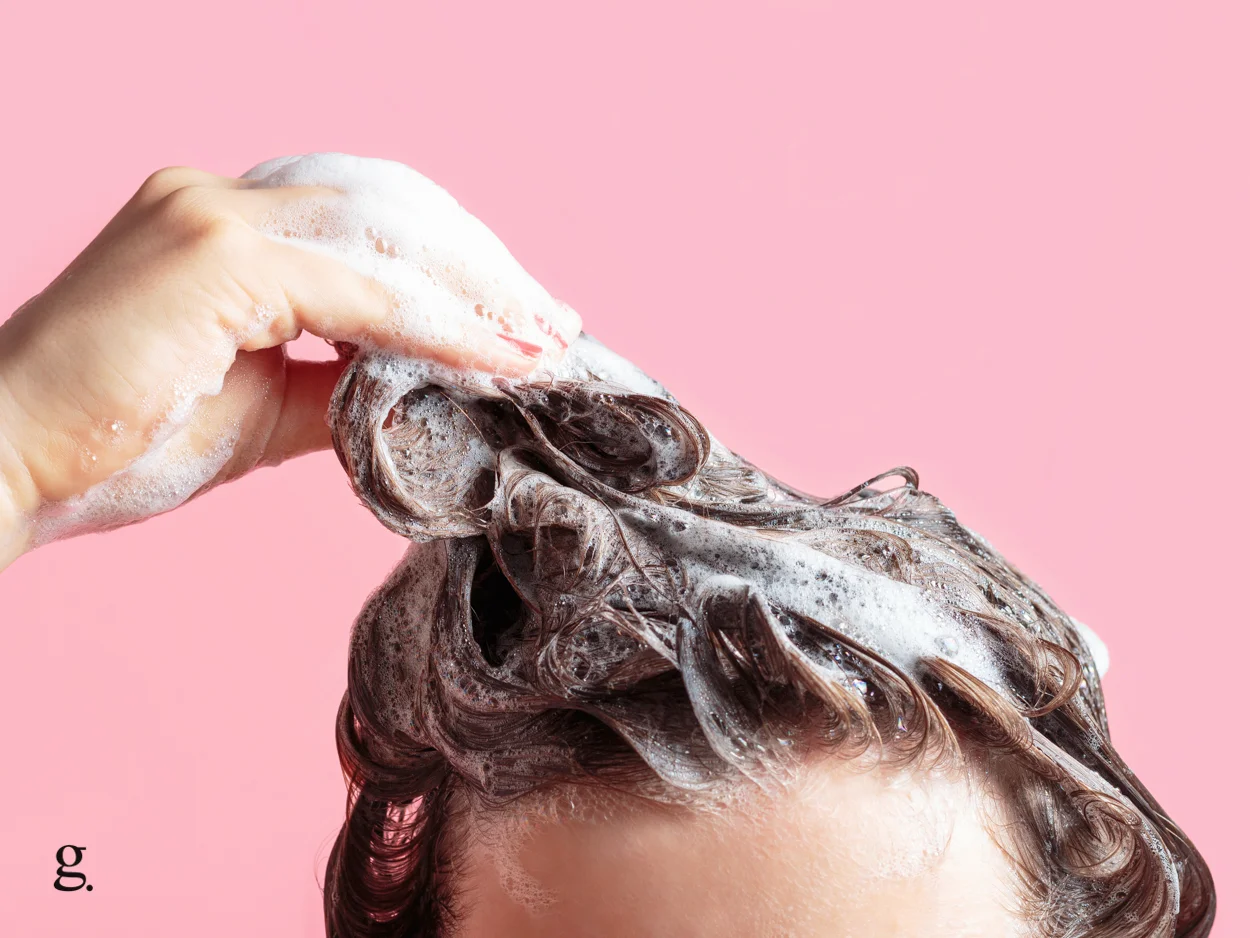Welcome to the world of hair care where a new ingredient is taking the industry by storm: caffeine. While caffeine is commonly known for providing a quick energy boost, it has recently become a popular ingredient in hair care products, specifically those targeted toward hair growth.
Caffeine-infused hair products claim to stimulate hair growth and even reduce hair loss.
What Is Caffeine?
Caffeine is a naturally occurring stimulant found in various plants such as coffee beans, tea leaves, and cocoa beans. It is commonly known for its ability to boost energy and increase alertness.
Caffeine works by blocking adenosine, a neurotransmitter that causes drowsiness and fatigue, which allows for an increase in the activity of other neurotransmitters such as dopamine and norepinephrine.
In addition to being consumed through beverages, caffeine is now being incorporated into hair care products due to its potential benefits for hair growth.
Does Caffeine Make Hair Grow Faster?
Studies have shown that caffeine can potentially promote hair growth. Caffeine has been found to stimulate hair follicles by improving circulation and increasing blood flow to the scalp. This increased blood flow provides the hair follicles with more oxygen and nutrients, which can lead to healthier and stronger hair.
Additionally, caffeine has been shown to block the effects of dihydrotestosterone (DHT), a hormone that can cause hair follicles to shrink and eventually lead to hair loss.
While the potential benefits of caffeine for hair growth have been noted in studies, it is important to keep in mind that the results may vary from person to person. Hair growth is a complex process that can be influenced by a variety of factors, including genetics, diet, stress levels, and overall health.
Additionally, the effectiveness of caffeine-infused hair products may also depend on the concentration of caffeine in the product and the frequency of use.
To get the most out of caffeine-infused hair products, it is important to follow the recommended usage instructions and to be patient when waiting for results. It may take several weeks or months of consistent use to notice any significant changes in hair growth or thickness. Additionally, it is important to maintain a healthy hair care routine and to address any underlying health concerns that may be contributing to hair loss or lack of hair growth.
Overall, while caffeine may potentially offer some benefits for hair growth and thickness, it should not be relied upon as a sole method for promoting hair health.
Does Caffeine Make Your Hair Thicker & Fuller?
In addition to potentially promoting hair growth and reducing hair loss, caffeine has also been found to improve the overall thickness and fullness of hair.
Caffeine works by stimulating the hair follicles, which can lead to an increase in hair shaft diameter and hair volume.
Additionally, caffeine has been found to prolong the anagen phase of hair growth, which is the active growth phase of hair. By prolonging this phase, caffeine may potentially result in thicker and fuller hair over time.
However, as previously mentioned, more research is needed to fully understand the effects of caffeine on hair thickness and fullness, and to determine the optimal concentration and frequency of use for caffeine-infused hair products.
Topical Application vs. Consumption
While caffeine is commonly consumed through beverages such as coffee and tea, drinking large amounts of caffeine isn’t likely to do much for your hair.
The caffeine used in hair care products is applied topically to the scalp and hair. Topical application allows for direct absorption of caffeine into the hair follicles and scalp, which can potentially enhance its effects on hair growth and thickness.
Additionally, the concentration of caffeine used in hair care products is typically much higher than the concentration found in beverages, which may also contribute to its effectiveness. It is important to note, however, that while caffeine-infused hair products may offer potential benefits for hair growth and thickness, they should not be relied upon as a sole method for promoting hair health.
A well-rounded hair care routine that includes a healthy diet, proper hair care practices, and potentially other hair growth ingredients should be considered for optimal results.
The Best Ways To Use Caffeine For Hair Growth
If you’re interested in incorporating caffeine into your hair care routine for potential hair growth benefits, there are several ways to do so.
- Caffeine-infused shampoos and conditioners: Look for hair care products that contain caffeine as an active ingredient, such as shampoos and conditioners. These products can be used in place of your regular hair care products to potentially promote hair growth and thickness.
- Scalp massages with caffeine oil: Caffeine oil can be massaged directly onto the scalp to stimulate the hair follicles and improve circulation to the scalp. Simply apply a few drops of caffeine oil to the scalp and massage in gentle circular motions for a few minutes before washing hair as usual.
- DIY caffeine hair masks: You can also create your own caffeine-infused hair masks using ingredients such as coffee grounds and coconut oil. Mix equal parts coffee grounds and coconut oil to create a paste, apply to the scalp and hair, and leave on for 20-30 minutes before washing hair as usual.
How Long Does It Take To Work?
The time it takes for caffeine-infused hair products to show results can vary based on various factors, including the individual’s hair type, the concentration of caffeine in the product, and the frequency of use. Some individuals may see results as early as a few weeks, while others may take several months to notice any changes in hair growth or thickness.
It is important to note that consistency is key when using caffeine-infused hair products, and regular use may be necessary to see optimal results. Additionally, it is important to remember that hair growth is a slow process, and it may take time to notice any significant changes in hair growth or thickness.
Caffeine and Hair Loss
Hair loss is a common concern for both men and women, and caffeine has been found to potentially offer some benefits in reducing hair loss. As previously mentioned, caffeine can block the effects of DHT, a hormone that can cause hair follicles to shrink and eventually lead to hair loss.
While caffeine may be effective in promoting hair growth, it should not be considered a standalone treatment for hair loss, though it may be useful to be used in conjunction with other proven methods.
Alternatives To Caffeine For Hair Growth
Some alternative remedies that people believe may help with hair growth are:
- Rosemary oil: Rosemary oil has been shown to increase hair growth in some studies. Apply a few drops of rosemary oil to your scalp and massage it in for a few minutes.
- Peppermint oil: Peppermint oil may help to stimulate hair growth by increasing blood flow to the scalp. Dilute a few drops of peppermint oil with a carrier oil, such as coconut or almond oil, and massage it into your scalp.
- Aloe vera: Aloe vera contains enzymes that can promote healthy hair growth. Apply fresh aloe vera gel to your scalp and leave it on for a few hours before washing it off.
- Onion juice: Onion juice contains sulfur, which is thought to promote hair growth. Apply onion juice to your scalp and leave it on for 15-30 minutes before washing it off.
- Biotin: Biotin, also known as vitamin H, is important for healthy hair growth. You can take biotin supplements or use biotin-infused hair products.
It is important to note that while these remedies may help with hair growth, they are not guaranteed to work for everyone.
Conclusion
Caffeine has emerged as a popular ingredient in hair care products due to its potential benefits for hair growth and thickness. Studies have shown that caffeine can stimulate hair follicles, improve circulation and increase blood flow to the scalp, which can lead to healthier and stronger hair. Caffeine can also block the effects of DHT, a hormone that can cause hair follicles to shrink and eventually lead to hair loss.
While caffeine-infused hair products may offer potential benefits for hair growth and thickness, it is important to maintain a healthy hair care routine that includes a balanced diet, proper hair care practices, and potentially other hair growth ingredients for optimal results. The time it takes for caffeine-infused hair products to show results may vary based on individual factors, and regular use may be necessary to see optimal results.
Overall, while caffeine may offer some benefits for hair health, it should not be relied upon as a sole method for promoting hair growth or reducing hair loss. Consulting with a healthcare professional or dermatologist is important to determine the underlying cause of hair loss and develop a comprehensive treatment plan.

